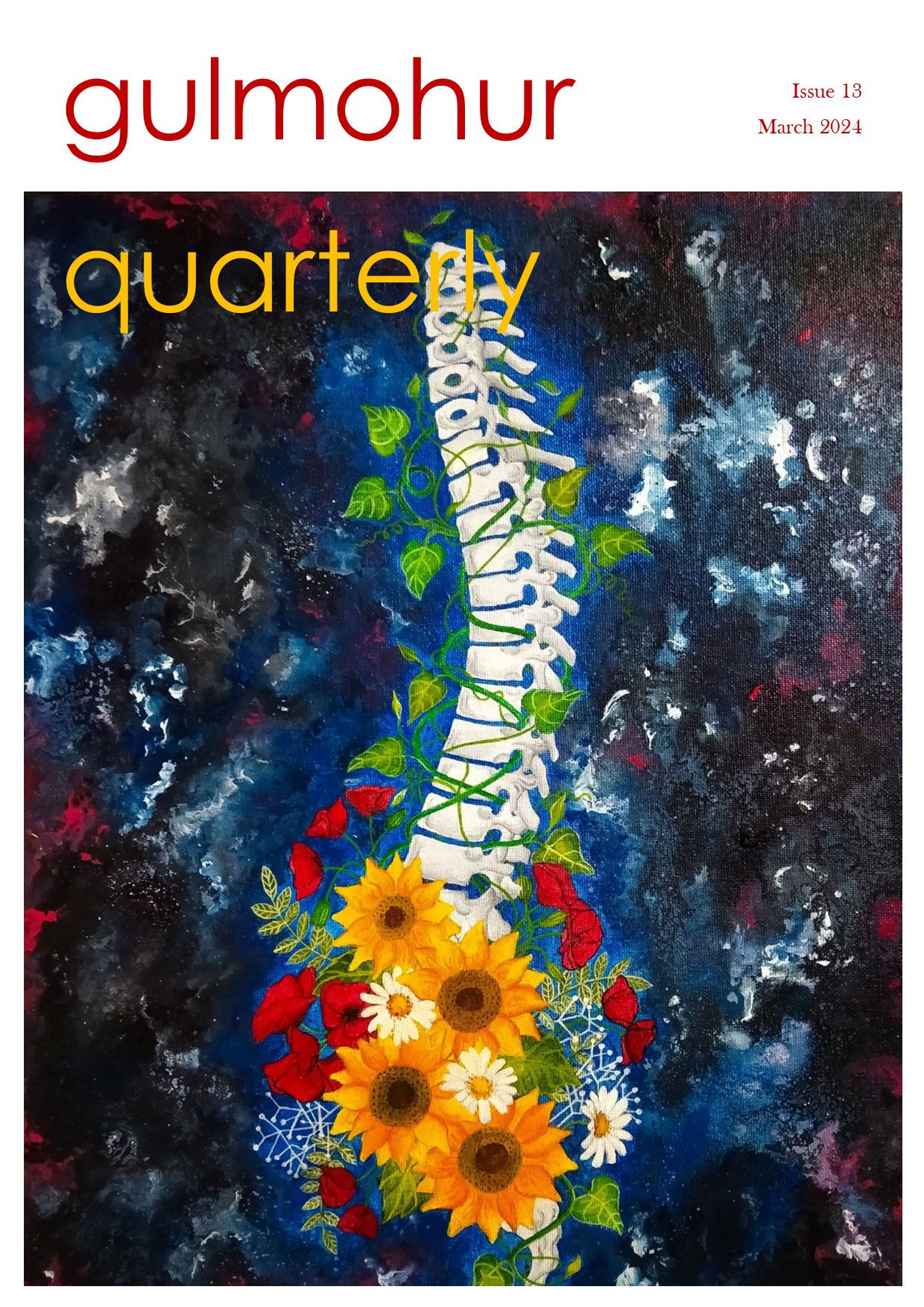Editorial: Issue 13/ March 2024

“People pay for what they do, and still more for what they have allowed themselves to become. And they pay for it very simply; by the lives they lead.”
― James Baldwin
*
This issue features two brilliant short stories: one, translated from Hindi, showing the domestic world and the inner lives of men and women in a tradition-bound, patriarchal household; and the other, looking to excavate the depths of a lived life, against the background of a dead grandmother. The poetry in this issue ranges from a poet’s loving ode to a city to a longing across space and time; from nostalgia for home to a giving up of the desire to live, from loving pets and people to articulating the despair of living in our times. These poems are laden with an urgency that is often accompanied by a suffocation, a confinement. A poet urges us to imagine a passage from Kashmir to Palestine, entailing the horrors unfolding right before us, as we read and write poems. The bottled up grief and subjugation of the pandemic days continue to trickle in poetic forms. Another poet poses the poignant question, as it were, to civilization itself: “Our children are gone./ So who will rebuild our cities?/ Now that our children are gone.// And who should we rebuild our cities for?/ Now that our children are gone.” The essay section contains an excellent, insightful review of Karan Madhok’s novel A Beautiful Decay. Two works of curatorial translation bring to us poetry of dissent and protest from the worlds of Bengali and Gujarati languages. Tamal Shekhar Dey’s poems highlight the atrocities of state and the victims of caste and race violence from his works How Many Days it Takes to Forget a Dead Body’s Stench and I Can’t Breathe. The translation of Dalit poets Jayant Parmar and Neerav Patel open us to the subversive possibilities of sociality and social organizing as such. The photo story in this issue documents the life of an octogenarian businesswoman who carries forth, a day at a time, surely the only way time can be dealt with.
*
gulmohur stands in solidarity with the jailed activists and intellectuals of the Bhima Koregaon case; the victims of communal hatred and of state violence; the victims of caste and gender violence; the victims of fundamentalist oppression anywhere in the world; and with all those who dissent in the spirit of democracy to safeguard our ever-diminishing freedoms. We stand for the liberation of Palestine. We stand against the collapse of national and global institutions in the face of humanitarian crises.
*
We would like to express our profound thankfulness to our readers and well-wishers everywhere. We are immensely grateful to all our friends (on and off social media) who have helped us reach out. We also thank our contributors for trusting us with their submissions.
*
We hope you enjoy reading Issue 13 of the quarterly. Long live resistance!
Editors
gulmohur
March 2024